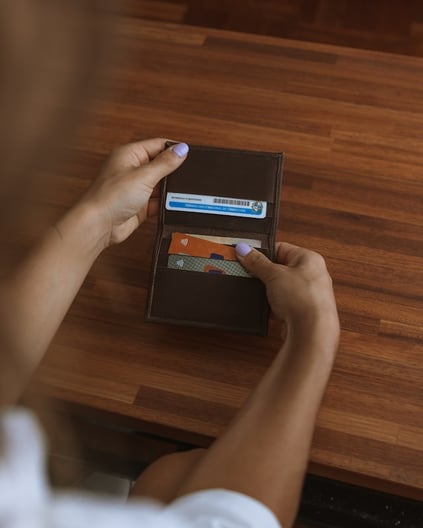Improving your credit score can help you achieve the goal of buying a house faster. The higher your credit score, the lower the interest rate you'll qualify for when you borrow money to buy a home. Try these tips to improve your credit score, and then get your real estate agent on the phone because you're buying a house!
- Don't Pay Off Your Entire Credit Card
- Keep Older Credit Cards
- Cut Back on Too Many Credit Cards
- When is Your Account Reported to Credit Bureaus?
- Late Payment Forgiveness
- What's on Your Credit Report?
What is a Good Credit Score?
When you're trying to buy a house, a good credit score is 670 and higher. With a credit score in the high range, you have a good chance of getting approved for a home loan at a low-interest rate. On the other hand, if your credit score is 300-579, you'll have difficulty getting approved for a mortgage. A credit score somewhere in the middle, say 580-669, will make you eligible for home loans, but your interest rate will be high.
#1: Don't Pay Off Your Entire Credit Card Bill
Wait a minute! How can that be true? According to Todd Wilson, a loan officer and credit expert, credit bureaus will give you a higher credit score when you leave a little due on your credit card ($50). So, don't pay your entire credit card bill if you want to increase your credit score quickly.
If you leave a little bit ($50) on your monthly credit card bill instead of paying it off in full, credit bureaus will give you a higher credit score!
#2: Keep Older Credit Cards
Keep your older credit cards and get rid of the newer cards. Older credit cards are essential to your credit score because they establish a credit history. A long history of paying your credit card bill on time will positively impact your credit score.

#3: Cut Back on Too Many Credit Cards
Many people wonder if having multiple credit cards helps their credit score. Too many credit cards will bring your score down. Pay off some of your newer and less-used credit cards to improve your credit score, then cancel them. Focus on canceling credit cards designed to be used in one place, like clothing or furniture stores. These credit cards are finance company accounts where you can get a card with 0% interest for 12 months. Pay them off before the 12 months are up, or pay for accrued interest from the day you opened the account and a much higher interest rate!
Pay off and cancel “0% interest for 12 months” credit cards.
#4: Ask When Your Account is Reported to Credit Bureaus
Most of us don't know when our account gets reported to the credit bureaus, but you can call your credit card company to ask. Once you learn the date, ask your credit card company to set your statement date a few days before the credit bureaus look at your account. By doing this, you'll avoid having a large credit card balance when the bureaus see your account. If your card is paid off or has a $50 balance, your credit score will be higher. Knowing when your credit card account gets reported to the bureaus, and staying a couple of steps ahead of them, can give you an edge and a higher credit score.
Pay off your credit card balance each month before your account gets reported to the credit bureaus.
#5: Late Payment Forgiveness
If you pay your credit card on time each month but accidentally pay late one time, contact your credit card company immediately and ask if they will remove the late fee. I've personally done this, and my credit card company forgave the late fee. The missed payment will stay on your credit report for seven years if you don't pay for an entire billing cycle.
#6: Know What's on Your Credit Report
Knowing your credit score will help you raise your credit score. First, sign up for a free Experian account (very user-friendly). Setting up an account will not count as an inquiry, so it won't affect your credit score. Once you have an account, you will be able to see your credit score and if there are any red flags. Look for any charges made by someone other than you and accounts that aren't yours. If you find any credit issues, you can dispute them online, but you must do this with all three credit bureaus (Experian, Equifax, and TransUnion). Knowing what's on your credit report and fixing credit problems will improve your credit score.
Clear up any errors on your credit report to increase your credit score.
Conclusion
There are several ways you can increase your credit score quickly to help you qualify for a home mortgage. Always pay your credit card bill on time or a few days early, get rid of some of your finance company accounts, ask for late payment forgiveness, and know what's on your credit report. Remember, even if you have a low credit score, low-qualifying credit score programs and FHA loans with a higher interest rate may qualify you to buy a house. Take advantage of classes that will help you improve your credit score, and talk to your mortgage lender to see what home loan programs are available to you. Before you know it, you'll have increased your credit score to over 700!














